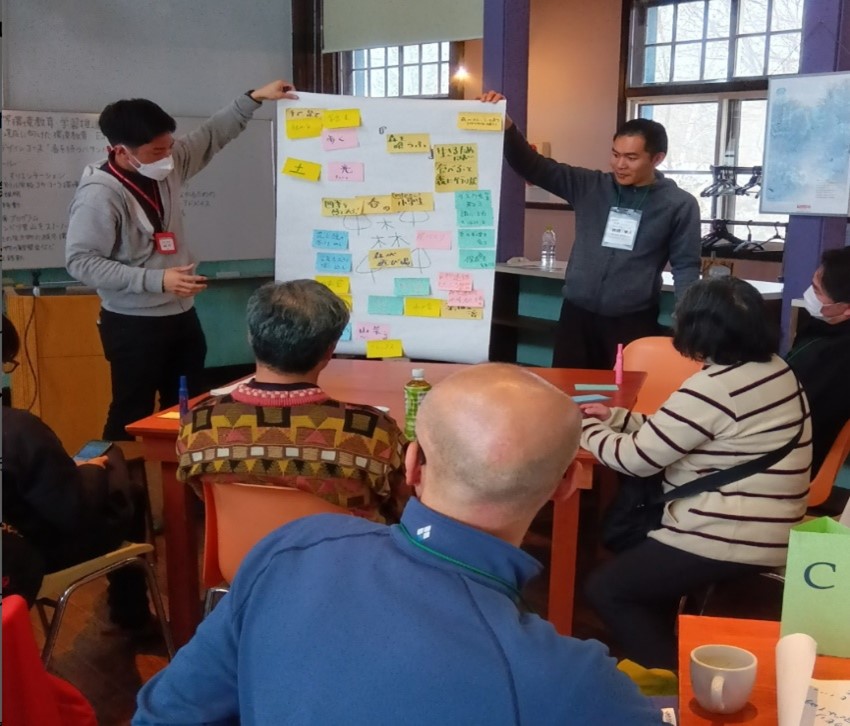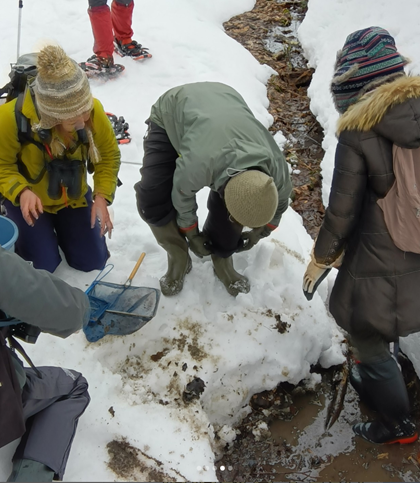
[Case Study] Sharing Japan’s Environmental Education Achievements – Written by Japanese Consultant Tokie Izaki
Building the Capabilities of Educators “Place for Nature-Based Experiences”1)
The implementation of teacher training for environmental education and education promotion leaders—a human resource development program aiming to foster leaders in the practice and promotion of environmental education at schools and in local communities—is done in collaboration with Ministry of Environment (MOE) and Ministry of Education Culture, Sports, Science and Technology (MEXT).
The program offers two types of courses with differing objectives:
- Curriculum Design Course
The goal is to cultivate leaders who can design curricula for environmental education and ESD (Education for Sustainable Development), primarily targeting school staff, so that they can practice and promote interdisciplinary environmental education and ESD that incorporate community coexistence perspectives in schools and local areas.
(2) Program Design Course:
Targeted primarily at environmental education and ESD personnel in private companies, as well as ESG personnel, this program includes lectures, presentation of practical case studies, and opportunities for discussion, aimed at enabling the planning and implementation of environmental education programs in collaboration with schools, communities, and businesses.
Contents: Visit corporations and organizations that offer experience activities (eight locations throughout Japan provide experience activities) to learn how to practice and plan experience activities for environmental education and ESD, as well as key points on how to encourage changes in adults’ and children’s behaviors and mindsets.
In addition, aimed at diverse participants. It is designed to cultivate the ability to design environmental education programs through experiential activities in various fields, including organizations that operate "Experience Opportunity Venues" certified by prefectural governors, nature-based environmental education rooted in rich natural environments such as national and quasi-national parks and Ramsar Convention registered wetlands, and community and corporate-led environmental education in social education facilities. Participants will use their five senses to experience the relationship between initiatives for building a sustainable society and environmental education/ESD, learn perspectives and interactive communication skills for planning and implementing experiential activities while sharing empathy through dialogues with diverse stakeholders.
Target Audience: Educators, government officials, private companies, NPOs/NGOs, students, and anyone interested in environmental education, experiential activities, and community development.
These picture are from the seminar held in Uenbetsu elementary school, Coca cola environment house, certificated as Place for Nature-Based Experiences, in Kuriyama, Hokkaido, JAPAN2).
On the 17th of March, 2024, we held a workshop to learn about effective experiential environmental education planning and implementation. During the programme, in the morning, we learned about the initiatives of the Uenbetsu elementary School, followed by experiences such as snow hiking in the Satoyama of Hasanbetsu and observing aquatic creatures. In the afternoon, we had a 'One Point' lecture from the instructor in line with how to connect with schools, and participants actively exchanged opinions freely by using the World Café method.
1) “Place for Nature-Based Experiences” is referred from the term officially used in the Act on the Promotion of Environmental Conservation Activities through Environmental Education. However, actually in our project, this includes not only nature-based activities but also other hands-on experiences.
2)Certification of Place for Nature-Based Experiences under the Act on the Promotion of Environmental Conservation Activities through Environmental Education
This is a system where land or buildings being used under ownership or lease agreements can be certified by the governor of the prefecture or the mayor of designated cities, when they are offered as venues for experiential opportunities such as nature based experience activities or other social experience activities, based on an application.
The purpose of publicly announcing “Certification of Place for Nature-Based Experiences” through the internet is to facilitate access for individuals wishing to participate in natural experience activities, social experience activities, etc., to venues that meet their needs.



